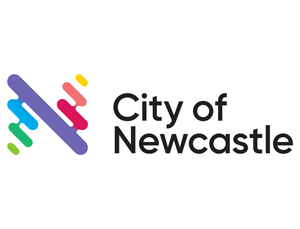Our journey
What council has achieved in the past in energy efficiency, renewable energy or broader sustainability
Newcastle City Council has a long history of acting to reduce its electricity consumption and carbon emissions. During the delivery of Council’s Greenhouse Action in Newcastle (2001-2008) plan, the Council reduced its emissions by 13.6% below 1995 levels despite adding a significant number of additional facilities and operations. Through the Newcastle 2020 Carbon and Water Management Action Plan (adopted in 2011), Council began delivery of its Smart Buildings Smart Workforce project which involved a range of energy efficiency upgrades and retrofits at high-use social, cultural and recreational facilities and key Council operational buildings and facilities. Upgrades at 7 major Council sites targeted improvements to Heating and Air conditioning plant and controls, power factor correction, automated fault detection, double glazing windows and replacing over 2500 light fittings with LED. The project achieved a reduction in Council’s electricity consumption by over 1.45 million kilowatt-hours a year, with associating annual savings of 1500 tonnes of carbon pollution and $240,000 in electricity costs. Newcastle Council also delivered the Energy Hunter energy efficiency for SMEs program in collaboration with the Hunter Business Chamber and Hunter TAFE to over 400 businesses in the Hunter region. Providing tailored energy efficiency information, energy monitoring, workshops and over 350 face-to-face business visits the program was awarded the NSW Green Globe award for Climate Change Leadership in 2014. Businesses participating in the Energy Hunter program collectively reduced their electricity consumption by over 4 million kilowatt hours, saving 4200 tonnes of CO2 emissions and $1.1m in electricity bills annually.
Since 2012, Council has also begun a rollout of Solar photovoltaic (PV) systems with installations at the City Works Depot at Waratah (91.26 kW), Newcastle Art Gallery (86.25 kW) Newcastle City Library (44.28 kW), Wallsend Library (80.08 kW), New Lambton Library (9.9 kW), No.1 Sportsground (10.2 kW including 14kWh battery storage), No.2 Sportsground (20.16 kW including 22kWh battery storage) and the Newcastle Museum (99.75 kW). This brings the total amount of solar PV installed on Council-owned buildings to 442 kW. In addition, a small-scale (2.5 kW) wind turbine is in operation at the Summerhill Waste Management Centre.
What council hopes to achieve in the future in energy efficiency, renewable energy or broader sustainability
Council has established a series of goals to achieve further progress towards financial and environmental sustainability. By 2020, Newcastle City Council aims to achieve the following energy and resource management goals:
- 30% carbon footprint reduction*
- 50% potable water usage reduction*
- 30% electricity usage reduction*
- 20% reduction* in our use of fossil-based liquid fuels
- 30% of our electricity supplied from low carbon sources
- 80% of Newcastle’s streetlights using best practice energy technology
* Over 2008-09 levels
# Over 2010 levels
The implementation of an online monitoring and reporting system for Council’s operations tracks electricity, gas, water and fuel usage to allow Council to accurately track and report on its progress towards targets. As Newcastle Council works towards the 2020 Carbon and Water Management Action Plan, the 2017-2012 Smart City Strategy provides complementary objectives to achieve its targets, including investigation of a 5MW Solar Farm and battery storage to offset Council electricity use, undertaking LGA wide street lighting upgrades to LED, continuing the rollout of rooftop Solar PV and battery storage across Council facilities, supporting the uptake of electric vehicles for Council fleet and providing electric vehicle charging infrastructure across the city.
What council hopes to gain from being a member of the Cities Power Partnership
A key objective of the Newcastle 2020 Carbon and Water Management Action Plan is to lead the transition to a low carbon economy by positioning our city as a global testing ground for innovative technologies and behavioural change programs that have the capacity to be adopted into the mainstream. By joining the Cities Power Partnership, Newcastle Council has the opportunity to work with like-minded Councils across Australia, on further ways to achieve environmental improvements and emission reductions while at the same time making financial savings and reducing exposure to electricity price rises. Newcastle Council can contribute to the work of the partnership by sharing its knowledge, experience and expertise with the community, local businesses and other Councils while at the same time learning from the experience of other partners who are taking the lead in developing low carbon cities and communities.
